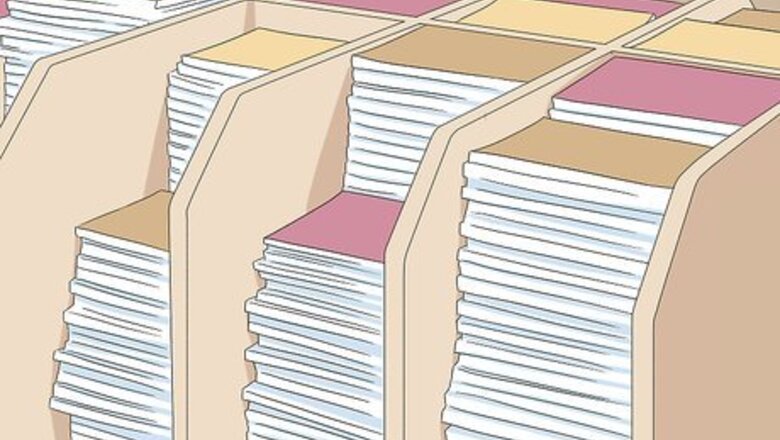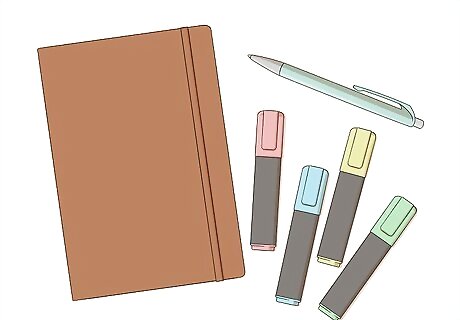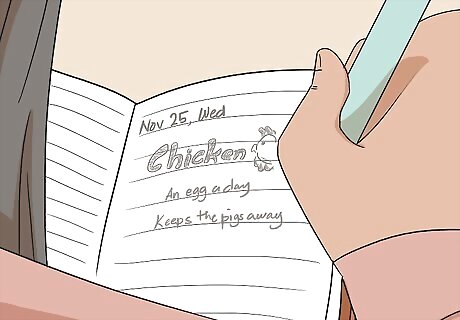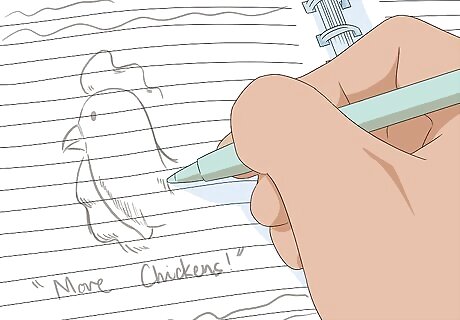
views
Choosing a Suitable Journal

Get a nice notebook that you like the feel and look of. It's a good idea to buy one online, as you'll may find a greater assortment of notebooks; however, if you want to hold and touch the notebook first, visit a few stores that stock good quality stationery. If you can't find a design you like, it's a fun idea to find any kind of durable but flexible paper, such as wrapping paper, in a color you like, which you can use to cover a plain notebook with. Write your name on the first page and any relevant details.

Buy either a fancy journal or diary. Using just a plain notebook or a small pad of spiral notebook paper is fine too, but you may prefer the look and feel of an actual journal; just don't stray too far from your budget.
Writing in your Thoughts Journal

Start with an introductory page. You could add a picture of yourself if you like. It's also a neat place to write about your likes, your dislikes, your family, your friends, your enemies, your crush etc. This will personalize your journal.

Talk about things you love. Include items about people, places, things or activities. Spruce it up depending on the item you are talking about.

Record your thoughts in calendar form. You can color code your writing. Use red for really mad days, blue for sad days, sun-bleached yellow for happy days and green for sick days, or however you feel.

Write journal entries from writing prompts. There are a few websites online that can provide them, but most bigger bookstores (like Barnes and Noble and similar) have writing prompts journals that you can use to create prompts and answers yourself.

Use the journal whenever you need to explore your thoughts and form an opinion. Write about your thoughts on a particular topic you'd like to write about. It could be politics, popularity in school, a story, or anything you feel like writing.

Don't be afraid to draw, write stories and poems, songs, or anything else about people, places and things in it.

Use the journal whenever you'd like to get your feelings sorted out. It can be useful to write down your feelings whenever you feel confused, upset, worried or distressed. It can be just as useful to write down your thoughts whenever you're feeling happy, excited or inspired. Recording thoughts can help you to learn that you're a balance of both negative and positive thoughts and that you might be tilting a little too far either way and need to readjust to see life more realistically or less pessimistically. It's also great to have some positive entries to read on days when you feel everything but happy or settled.

Use the journal whenever you need to make a difficult decision. It can be a great place to make lists, do pro and con columns and to work through consequences. You can also read back to other times you've made decisions, to remind yourself of the outcome and what worked best for you each time (or what didn't work).

Use the journal to help you visualize goals and desires. Use mind maps, lists, diagrams and other visual aids to work through the goals you want to set yourself and the hopes and desires for things to turn out the way you'd like them to. Be sure to include possible roadblocks and speed bumps––thinking ahead about possible negatives is a way of planning for the worst and having alternative scenarios to help you move on.

Try to draw pictures to make it interesting. Of course, you could also use photographs if you have any.

It's a good idea to write your journal after school or college each day or after dinner. By that time, a lot has probably happened that day, and you might want to write about it. It's really up to you if you want to write in your thoughts journal daily or less often. The benefit of getting into a habit of writing daily is that it can help you to see patterns of thinking and can be a great way to start rearranging your thoughts to be more constructive and helpful to you. You don't need to write a lot each day––just a few lines is as fine as several pages.




















Comments
0 comment